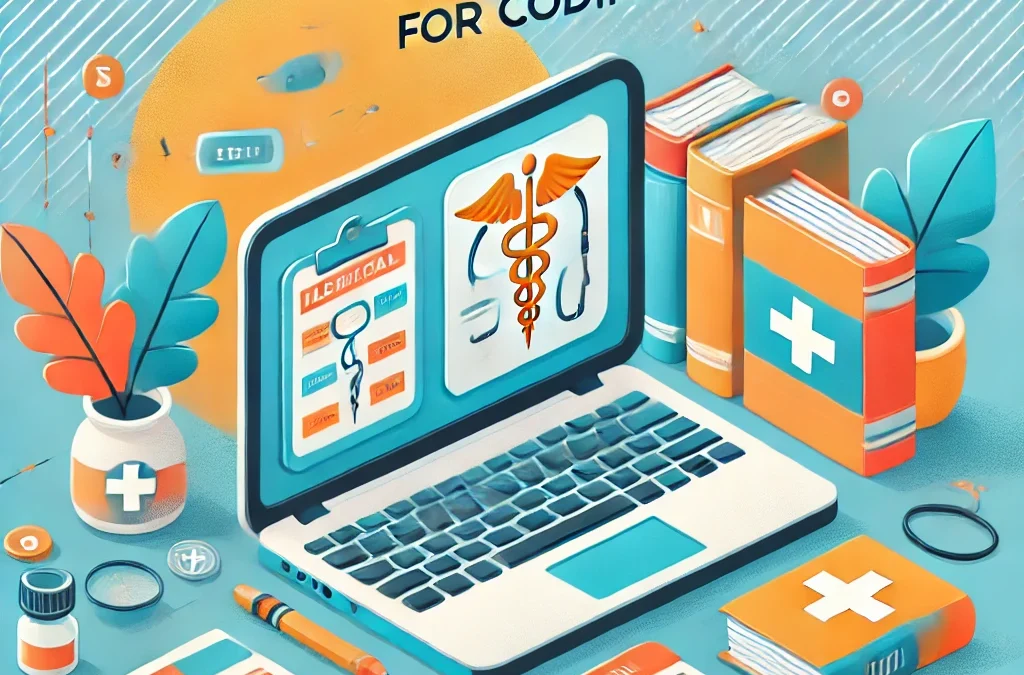Learn Medical Terminology for Coding
Medical terminology is the foundation of medical coding. Understanding these terms ensures accurate documentation, coding, and billing,
making it essential for anyone working in healthcare administration.
Introduction to Medical Terminology
Medical terminology allows healthcare professionals to communicate precisely. Coders need a solid grasp of these terms to correctly
interpret diagnoses, procedures, and treatment plans.
Structure of Medical Terms
- Prefixes: Modify the meaning of root words (e.g., Hyper- means excessive).
- Suffixes: Provide context, such as a condition or procedure (e.g., -itis indicates inflammation).
- Root Words: Core of the term, usually related to a body part or function (e.g., Cardi- refers to the heart).
Common Prefixes and Their Meanings
- Hyper-: Excessive or above normal.
- Hypo-: Below normal or deficient.
- Pre-: Before or in front of.
Common Suffixes in Medical Terminology
- -itis: Inflammation (e.g., Arthritis).
- -ectomy: Surgical removal (e.g., Appendectomy).
- -ology: Study of a subject (e.g., Cardiology).
Medical Root Words for Anatomy and Physiology
- Cardi-: Refers to the heart.
- Neuro-: Related to the nervous system.
- Gastro-: Pertains to the digestive system.
Learning Techniques for Medical Terminology
- Use flashcards for quick memorization and review.
- Try interactive apps and online quizzes to reinforce learning.
Using Medical Terminology in ICD-10 and CPT Coding
Medical terms are integral to coding systems like ICD-10 and CPT. Coders must accurately interpret these terms to assign the correct
codes for diagnoses and procedures.
Specialized Terminology for Different Medical Fields
- Cardiovascular Terms: Focus on heart conditions and treatments.
- Musculoskeletal Terms: Related to bones, muscles, and joints.
Avoiding Common Errors with Medical Terms
- Avoid confusing similar-sounding terms (e.g., Ilium vs. Ileum).
- Ensure correct spelling to prevent billing errors.
Tools and Resources for Learning Medical Terminology
- Recommended books: Medical Terminology for Health Professions.
- Use flashcard apps like Quizlet for ongoing practice.
Practical Tips for Mastering Medical Terminology
- Break down complex terms into components for easy understanding.
- Use visual aids, such as anatomical diagrams, to reinforce learning.
Career Opportunities with Strong Medical Terminology Skills
Proficiency in medical terminology opens doors to careers in billing, coding, and healthcare administration. Specialized roles often
require a deep understanding of these terms.
Conclusion – Master Medical Terminology for Success in Coding
Mastering medical terminology is essential for accurate coding and successful careers in healthcare. With the right tools and techniques,
you can build a strong foundation in this critical skill.
FAQs
How long does it take to learn medical terminology for coding?
It usually takes a few months of consistent study to become proficient.
What are the best resources for learning medical terminology?
Books, online courses, and flashcard apps are excellent resources.
Do I need prior medical experience to learn these terms?
No, many courses are designed for beginners.
How does medical terminology improve coding accuracy?
It ensures that coders understand medical reports and assign the correct codes.
Can I use apps to learn medical terminology effectively?
Yes, apps like Quizlet make learning terms interactive and engaging.


Recent Comments